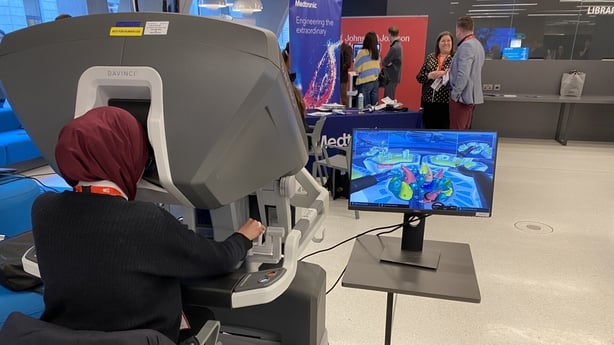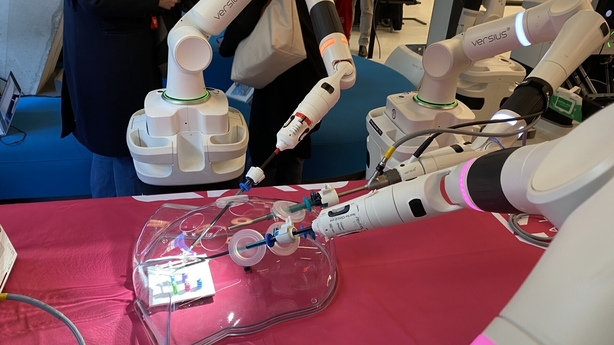New national guidance on the use of robotic surgery has been issued following significant growth in the use of these machines in hospitals for routine and complex procedures.
The new framework from the Royal College of Surgeons in Ireland (RCSI) has stated that the robot is not to blame if something goes wrong during robotic surgery.
Doctors have emphasised that the surgeons who used this equipment must be fully trained and they are in control and responsible.
Many hospitals now use robotic surgery, which has revolutionised treatment offering precision surgery, is minimally invasive and provides a potentially faster recovery time for patients.
Professor Christina Fleming, consultant colorectal surgeon, University Hospital Limerick, said robotic surgery uses very advanced technology, to deliver more precise surgery.

She said it was just another surgical tool, but very advanced to deliver improved outcomes for patients.
She said the robot does not perform the operation, and at all times it is controlled by the primary operating surgeon.
Prof Fleming said that all public hospitals now have robotic surgery platforms and it is a very important surgical technology, which also has a big role in surgical training.
The 'Robotic Surgery Governance in Ireland: A Guide to Good Practice' was launched today at the first Robotic Learning Village for surgeons today at the RCSI, where five machines were on display, for surgeons to practice on.

Professor Barry McGuire, Professor of Postgraduate Surgical Education & Academic Development at the RCSI, said because robotic surgery is now a key element of modern healthcare, there is a need for national governance in Ireland.
He said it was about patient safety as more and more robots are coming into use.
He said that around the world there are around 20 different types of surgical robots in use.
Prof McGuire said that robotic surgery has replaced many operations, that would previously have been performed by open surgery.
Robotic surgery began many years ago, first in the field of urology, particularly for prostate cancer.
It is often used now for surgery of the abdomen, liver, of the chest, thoracic surgery and ear, nose and throat surgery.







